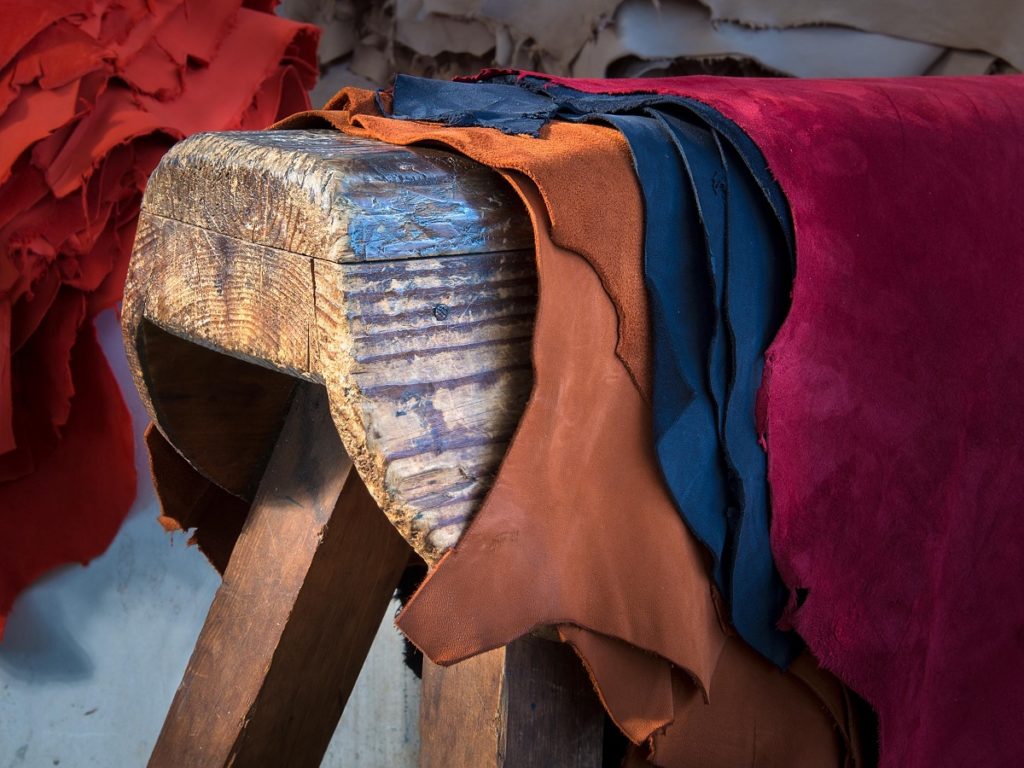“Vegan leather” - Portugal says no and here's why

In a decision released last week, Portuguese authorities banned the term “vegan leather” – the latest story in a string of problematic plant-based denomination issues. After the prohibition to call plant-based drinks “milk”, leather companies are now also protected from misleading denominations that use the terms “vegan”, “plant”, or even “synthetic” alongside with the word “leather” in their marketing. Their use is illegal, and the authorities will sanction this practice from now on with fines and prosecution.
The new legislation states that terms such as “vegan leather” are technically incorrect and misleading for consumers, and it is imperative to protect the leather industry and consumers. The new “Leather Decree” defines how the term “leather” can be used in commercial enterprises. Supporters of the new Portuguese decree also cited the high plastic content of some primary alternative sheet materials, such as cactus-based “desserto” and pineapple-based “Piñatex“, which may be questionable from a sustainability point of view too. So why are national authorities across the EU starting to put a spanner in the works of companies trying to market vegan alternatives? Why are vegan companies not simply creating new, fashionable denominations for products? The answers to these questions are often subtly eluded in media debates on the subject.
When vegan-oriented companies reference the original animal product, they clearly know what they are doing. Firstly, any good marketing specialist knows that establishing awareness or a cultural frame of reference around a product is complex, takes time and requires resources. Therefore, using a legal loophole is very tempting, as familiar terms have never needed legal protection until now. Yet the credibility of the leather sector is based on the work of thousands of tanners over the centuries. The reference universe related to leather is rich and directly linked to the materials’ notions, values, and properties (strength, tradition, naturalness, know-how, luxury, etc.). By using this denomination, it is this leather universe that is hijacked at a lower cost. Secondly, by marketing an oxymoron, such as the opposing concepts of “vegan” and “leather”, it also makes it possible to avoid referencing the real nature of the product for sale by enticing the consumer through its alternative – read better – option to the initial product. Practical! But yet pretty unfair.
Portugal joins other countries in Europe, such as Belgium, France, Italy, and Spain, where leather is legally protected. Hungary is also currently working on similar legislation, and other countries are considering following the same path to protect leather authenticity. In The Official Journal of the Republic of Portugal of January 4, 2022, the “Decree-Lei n.o 3/2022” was published, establishing the mandatory standards of the authenticity of the country’s leather. With this legislation, another EU Member State puts an end to misleading practices involving the hi-jacking of the term leather, including false descriptions such as ‘vegan leather’, ‘cactus leather’, ‘synthetic leather’, and artificial leather”.
The decree lays down the strict requirements for using these terms, stating that the term leather cannot be used in conjunction with qualifiers that contradict the intrinsic animal nature of leather. The leather authenticity legislation thus promotes the use of correct and truthful information for consumers, and breaking these rules constitutes an unfair commercial practice that must therefore be punished.
“While we welcome this legal development in Portugal, in COTANCE we were expecting that the European Commission would finally decide to proceed to a long-awaited harmonisation of leather authenticity rules at EU level.” says the president of COTANCE Manuel Rios (Inpelsa). In fact, during the completion of the EU internal market in 1992, the European Commission harmonised national rules on textile denominations and footwear labelling. But, it did not do the same for leather. Such a failure at the EU level is finally being compensated by developing rules on leather authenticity at the national level.
“The tone of vegan activists and manufacturers shows that we must persevere consistently in pushing forward authenticity. I see that they have a problem with transparency here because these so-called ‘Vegan leathers’ are plastic with some biological input, be it cactus, pineapple leaves, apple or grape peels – underlines COTANCE’s Secretary-General, Gustavo Gonzalez-Quijano – It is crucial to preserve the cultural heritage of this industry, which, aside from having created top quality products out of a residue (waste) of the meat industry, leather defines our lifestyles. Ruining its authenticity would be a terrible mistake for European culture.”